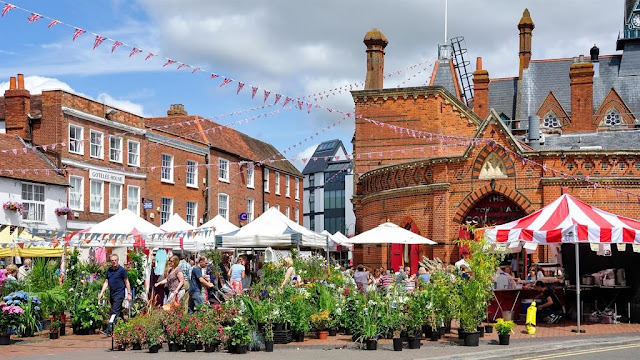The Peaceful Town of Wokingham
The town of Wokingham is in Berkshire and is 60 kilometers west of London and 11 kilometers southeast of Reading and 13 kilometers north of Camberley. The town is a constituent piece of the Reading-Wokingham Urban Area. Wokingham was a ward before the 1974 rearrangement of neighborhood government when it converged with Wokingham Rural District to frame the new Wokingham District. The courts of Windsor Forest were held at Wokingham and the town reserved the option to hold a market from 1219. The Bishop of Salisbury was to a great extent liable for the development of the town during this period. There are records indicating that in 1258 he purchased the rights to hold three town fairs each year. Queen Elizabeth allowed a town sanction in 1583. From the fourteenth to the sixteenth hundreds of years Wokingham was notable for its chime foundry which provided numerous holy places across the South of England.
During the Tudor time frame Wokingham was notable as a maker
of silk. A portion of the houses engaged with these cabin ventures are still to
be found in Rose Street. The houses with the taller ground floors housed the
weaving machines. This can be seen from the situation of the beams on houses.
It is said that one of the first mulberry shrubs most loved food of the silk
worm actually stays in one of the nurseries. In the years 1643–44 Wokingham was
consistently struck by the two sides in the Civil War. These attacks would
include the plundering of animals and exchanging products and more than thirty
structures were burned to the ground representing almost 20% of structures in
the town at that time. It was not until the mid eighteenth century that
Wokingham had completely recuperated. Today people from around other cities
come to visit the place to admire the scenic views and architectural remains by
using wokingham taxi service.
Wokingham was once renowned for its bull-bedeviling. In 1661 George Staverton left an endowment in his will giving two bulls to be fastened in the Market Place and teased by canines on St. Thomas' Day (21 December) every year. The bulls were marched around the town daily or two preceding the occasion and afterward secured in the yard of the first Rose Inn which was arranged on the site of the present-day Superdrug store. Individuals headed out from miles around to see the risky scene. Various canines would be debilitated or murdered during the occasion and the bulls were ultimately wrecked. The meat and cowhide were conveyed among the destitute individuals of the town. A portion of the observers additionally supported deadly wounds. In 1794 on the morning after the bull-teasing Elizabeth North was discovered dead and covered with wounds. In 1808 55-year-old Martha May kicked the bucket in the wake of being harmed by contenders in the group. The merciless 'sport' was denied by the Corporation in 1821 however bulls were as yet given at Christmas and the meat conveyed to poor people. Bull-goading was restricted by Act of Parliament in 1833.
A lot of Wokingham has been created in the course of recent years. Woosehill and Dowlesgreen were based on farmland in the last part of the 1960s and mid '70s alongside Bean Oak. Keephatch was inherent the mid '90s. The Norreys Estate was implicit the 1960s notwithstanding Norreys Avenue is the most established private street here having been underlying the last part of the 1940s as crisis lodging following the Second World War. Norreys Avenue has a horseshoe shape and possesses the site of the destroyed Norreys Manor. A significant part of the street contains 1940s-style pre-assembled houses in spite of the fact that there are some block houses alongside three squares of 1950s police houses. Today the town is known for its tranquil and peaceful environment where people are friendly and helpful. To experience the real small town experience you can reach the place by using a taxi in reading service.






Comments
Post a Comment